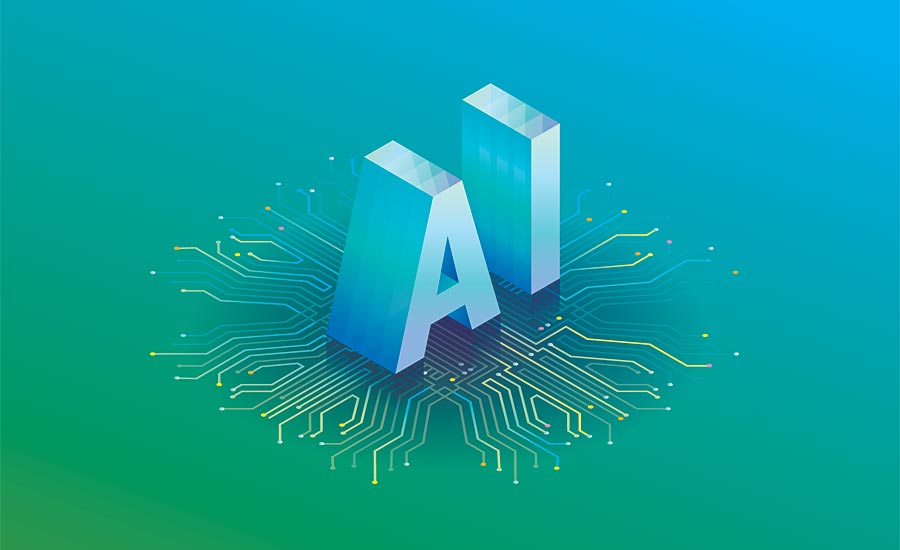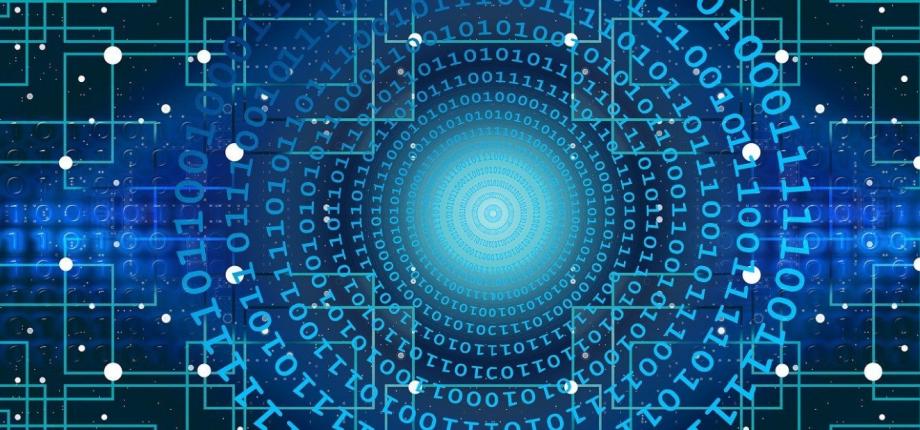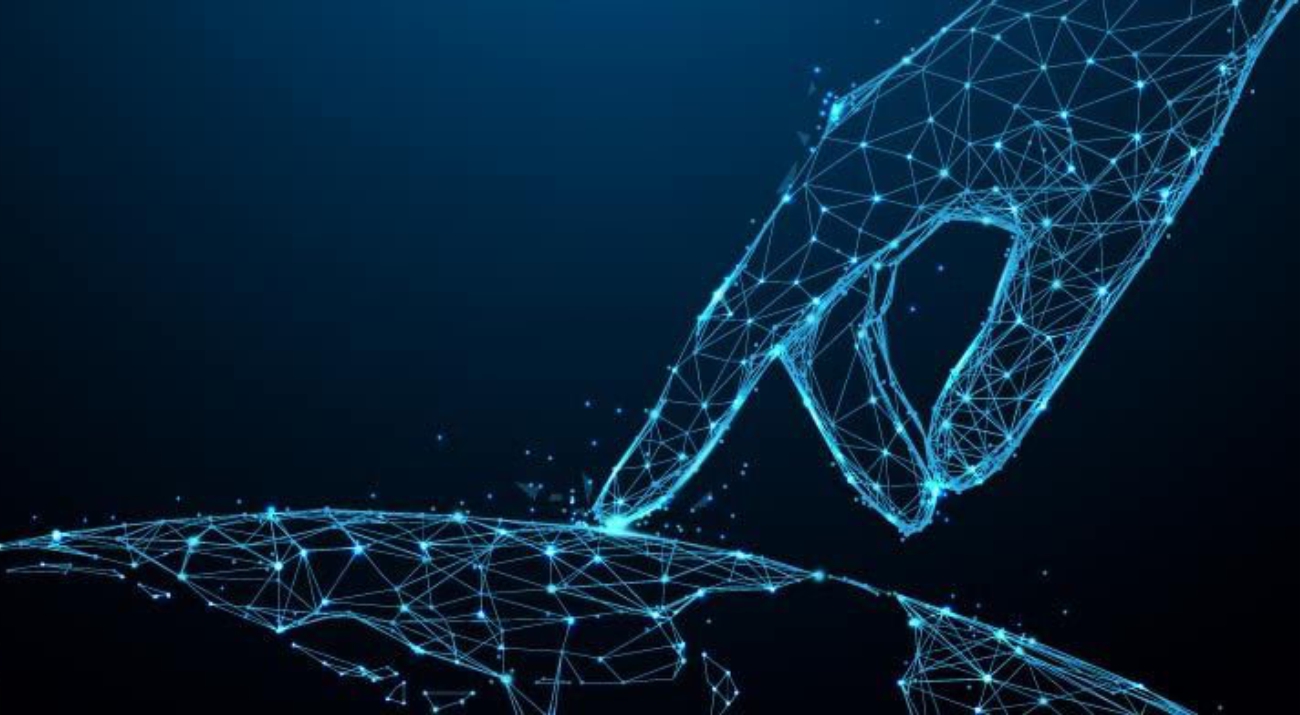AI IN INDIA
Artificial Intelligence is nothing but human intelligence in machines. It is a computer science developed by humans concerned with creating smart machines capable of performing functions that require human intelligence. Artificial Intelligence is the intelligence of the machines that are programmed to think and act like humans. AI is made to assist and guide humans. AI creates data, modify them, summarize them, arrange them, store them, and protect and secure them in electronic devices. AI helps in making the life of humans easier by providing umpteen facilities.
IMPORTANCE OF AI:
This Covid-19 pandemic has taught us that technology is the future. We are highly dependent on technology and we need to keep ourselves updated with technology. AI is impacting almost every industry and human being. Virtual meetings, automatic cars, air taxis, navigation, Robotics, IoT, and whatnot. We are surrounded by AI and technology. AI will continue to be a technology innovator for future generations. What used to be seen in science fiction is now becoming a ground reality. AI has become an integral part of our lives. From navigation to virtual assistance like Cortona, Alexa to voice control devices, everything is AI. Financial institutions, legal institutions, startups and administrative institutions all are trying to use AI for effective work process.
AI IN-LAWS IN INDIA:
In India, there is no specific law or government guidelines that govern or regulates Artificial Intelligence actions. According to the Brookings Institution report, the AI industry in India has seen a growth of $150 million investment in more than 400 companies from 2012-2017. From 2016 to 2017, these investments doubled from $44 million in 2016 to $77 million in 2017.
- National Strategy for AI
In 2018, the policy think tank of the Government of India, the National Institution for Transforming India (NITI Aayog), published a discussion paper on India’s national AI strategy. The paper aimed to leverage AI for economic growth, social development, and inclusive growth. The national AI strategy focused on the social sector of the country. The paper identifies 3 ways in which AI can satisfy the country’s needs. Firstly, by contributing to India’s economic growth by overcoming the physical limitations of capital and labour. Secondly, AI applications in the social sector will certainly improve and ease the quality of life of Indians. Thirdly, India can develop new AI technologies for other nations too.
The focus of the paper was on 5 social sectors: Healthcare, Agriculture, Education, Smart Cities/Infrastructure, Smart Mobility, and Transportation. National strategy for AI can also be seen in other nations but the inclusion of agriculture of priority sectors makes India different from others. The other nations focused less on agriculture unlikely India. With the growth in the AI sector, the Indian government acknowledged and framed various strategies for the AI sector in India. In India, the majority of the population is involved in the agriculture sector and keeping this in mind innovation and use of AI in agriculture is seen as fruitful for India.
Other than this, around 30 recommendations were given including investment in scientific research, encouragement of reskilling and training, accelerating the adoption of AI across the value chain, and promote ethics, privacy, and security in AI. NITI Aayog also recommended establishing centres of research excellence in AI (COREs), promoting innovation and education of AI. COREs will focus on fundamental research and will act as a technology feeder for International Centres for Transformational AI (ICTAIs). ICTAIs will focus on creating AI-based applications of societal importance. A consortium of Ethics Councils for CORE and ICTAI is also recommended for privacy, ethics, security guidelines for creating AI Marketplace. The country also aims to establish AI Garage to make AI developments accessible to the world.
- Report on Artificial Intelligence Task Force
An eighteen-member Task Force on AI for India’s Economic Transformation was set up by the ministry of industry and commerce in the year 2017. The Task Force focused on the use of AI along with its major challenges and possible solutions for various sectors namely: Manufacturing, FinTech, Agriculture, Healthcare, Technology for the differently-abled, National Security, Environment, Public Utility Services, Retail and Customer Relationship, and Education. Other than this, several recommendations to the government were made:
- The creation of an inter-ministerial National AI mission to coordinate AI-related activities in India.
- Enabling setting up of digital data banks, marketplaces and exchanges to ensure availability of cross-industry data and information.
- Participating in the elaboration of operation standards for AI-based systems.
- Putting in place enabling policies to encourage and facilitate the development and deployment of AI-based products (such as data policies regarding ownership, sharing rights and usage, etc.).
- Elaborating an AI education strategy to develop human resources and necessary skills.
- Supporting reskilling of the current workforce.
- Participation in the international policy discussion on the governance of AI technologies.
- Leveraging bilateral partnership on the development of AI solutions for social and economic problems and for sharing best practices in regulation.
- Ministry for Electronics and Information Technology Committees
The union ministry constituted 4 committees to encourage research in AI and headed by directors of the Indian Institute of Technology (IITs), National Association of Software and Service Companies (NASSCOM) and eminent researchers.
The following committees are:
- Committee on platforms and data for AI
- Committee on leveraging AI for identifying National Missions in key sectors
- Committee on mapping technological capabilities, key policy enablers, re-skilling, and R&D
- Committee on cybersecurity, safety, legal and ethical issues
- Task Force for strategic and national security implications of AI for India
A multi-stakeholder task force submitted its report to the ministry of defence. The report made the following recommendations:
- To make India a significant power of AI in defence, mainly on aviation, naval, land systems, cyber, nuclear, and biological warfare including both defensive, counter AI and offensive needs.
- For policy and institutional interventions required to regulate and encourage robust AI-based technologies for the defence sector: working with start-ups/commercial industry and recommendations for appropriate strategies of working with start-ups.
BENEFITS AND CHALLENGES OF AI IN INDIA:
Since AI is designed to reduce the workload of humans and provide them assistance based on the information stored on them, sometimes this can harm the privacy of the individuals. Hackers can hack the information stored on AI and can make unauthorized use of the data and even manipulate them. In the same way, AI can be a threat to national security by making unauthorized use of confidential information and sharing it with unethical sources.
Facial detection technology, crime detection: In India, state police forces across India are working with companies to deploy AI-assisted facial or image recognition techniques and predicting policing tools to detect and prevent crimes. In India, most of the criminal records stored in an offline form which often becomes tedious work for the police administration. Only a minimal amount of cases are recorded in digital format. Although the investigations include images, call records, messages, but the problem arises in extracting real-time information from an area or a vicinity. In such instances, the role of AI comes into the picture. AI being an advanced machine language can be used in applications to detect criminal records. AI can be a better source of collection of data and easy use facility. The problem with implementing such practises lies with cybercrimes. Recorded data in digital format can be deleted, manipulated, or accessed to unlawful holders of such confidential information. Misuse by neighbouring countries like China is also a possibility. China is known for committing cyber-attacks on India. In 2015, the Indian Electronics and Electricals Manufacturer’s Association (IEEMA) asked for a complete ban on Chinese equipment used in the Indian power sectors after the 2012 National Power Grid failure because of cyber-attacks. A 2015 report named “Fire Eye”, a US-based cybersecurity firm reported that China had been spying on the Indian government and businesses for more than a decade without India being aware of it. There has been many intrusions and attempts made to gather confidential information and harm the country’s security.
Facial Detection technology is another benefit of the use of AI. AI technology can identify a person’s face, age, gender, etc. with many benefits like no physical contact and direct physical interaction, AI makes it a seamless and automatic process. The COVID-19 pandemic forced us to maintain physical distance, sanitization of hands and the facial detection technology ensures we do not touch anything and maintain no physical contact. With many benefits, facial detection technology can be misused, questioned or be inadequate in the accuracy of face recognition. Retailers capturing photos of their customers to market individual customers can be questioned by customers. People may find it an invasion of their privacy and may not be willing to use this technology.
LIMITATIONS ASSOCIATED WITH AI IN TERMS OF PRIVACY/ETHICAL ISSUES:
As per the National Crime Records Bureau (NCRB) report, 44, 546 cases of cyber-crimes were registered in India in 2019, a significantly high number as compared to 28,248 registered cases in 2018. A 63.5 % hike of cases were seen in 2019. As per the FBI report, India stands third among the top 20 cyber-crimes victims. Due to such reports, people lose faith in technology and tries to maintain distance from it. There are privacy issues, transparency issues, fairness issues, application issues, data collection issues and many more. Various sectors face the same problem of data protection, privacy,
- Data: Data is the fuel that oils AI. Data that is both accurate and relevant in a given context, is rarely readily available. Crime data in India, for example, is grossly underreported. This constraint is felt by burgeoning FinTech and healthcare-related start-ups in the country; very few have access to accurate, affordable data about the populations that they hope to serve. Other than this, there is a systematic bias in the AI algorithm. For instance, let us consider Google’s AI-powered search algorithm. A Google search for “PAPPU” returns results, not of someone named as ‘Pappu’ or the word meaning on the top but the image of a popular politic leader comes on the top of the search. This is not necessarily a flaw in the algorithm, but an uncomfortable reflection of society’s stereotypes. Data can thus, not only expose problematic stereotypes and bias, but also cement, formalise, and imbibe it, simply by representing the environment in which it was created.
- Transparency and accountability: As AI applications increasingly supplant decision-making in the public sector [48], transparency and accountability in these systems become particularly crucial in constitutional democracies all over the world, including India. The opaque, complex, invisible manner in which AI systems function has led to concerns about accountability and redressal mechanisms, particularly the following application in areas like criminal justice and policing. The models applied to these problems are often inscrutable [49], with the potential to undermine democracy and accountability. This has made way for an active discussion around the need for accountability of learning algorithms, with transparency as a popular proposed mechanism.
HOW FOR COURTS AI CAN BE HELPFUL?
The functions of the judiciary are not limited to delivering justice in the courts of law. There is administrative work which is also part of the judiciary. The administrative part involves a lot of paperwork and follows long and dreading procedures. With the emergence and development of AI technology, AI can be an asset to the Indian judiciary. Coming up with AI developments for all paperwork replaced with technology and will go away from long procedures taking a lot of time to be done in a few minutes just like bank transactions online. Everything digitalized and AI contributing to it. It helps in scanning the documents, proper documentation of cases and can be used in assisting parties of the case in the matter, in a case where proper information and thought process regarding that matter is programmed in AI.
INTERFACE OF LAW AND TECHNOLOGY:
Right now, we only have the Information Technology Act, 2000 as technology law. The objective of the act, as per the official gazette, is to provide legal recognition for transactions carried out through electronic data interchange and other means of electronic communication, commonly referred to as ―electronic commerce, which involve the use of alternatives to paper-based methods of communication and storage of information, to facilitate electronic filing of documents with the Government agencies and further to amend the Indian Penal Code, the Indian Evidence Act, 1872, the Banker’s Books Evidence Act, 1891 and the Reserve Bank of India Act, 1934 and for matters connected therewith or incidental thereto. The internet and technology development from the past 10 years is massive and we need laws as per today’s requirement. Though the act amended and enabled the government to conduct surveillance on corporate networks and e-mail systems, still implementation stays a problem. Government propagating AI-based startups, adding AI in school course books, making laws to protect such start-ups will be appreciated. It is happening but more needs to be done.
CONCLUSION:
With new technologies and developments, AI plays a pivotal role in automobiles like the automatic start of cars with voice recognition, navigation facilities, etc. Also, AI tools like Amazon Alexa, Apple Siri, Microsoft Cortana, Google Assistant, etc. provide virtual assistance and suggests things based on phone-based searches and previous such activities. Other than this, AI is also helpful in court-related matters. It helps in scanning the documents, proper documentation of cases and can be used in assisting parties of the case in the matter, in a case where proper information and thought process regarding that matter is programmed in AI. Since AI is designed to reduce the workload of humans and provide them assistance based on the information stored on them, sometimes this can have an adverse effect on the privacy of the individuals. Hackers can hack the information stored on AI and can make unauthorized use of the data and even manipulate them. In the same way, AI can be a threat to national security by making unauthorized use of confidential information and sharing it with unethical sources. Currently, in India, there is no law governing the actions of artificial intelligence, therefore it is difficult to impose liabilities in such a serious and contentious matter. It is important to understand AI in today’s era as the world is becoming more digitalized every year. Due to the current situation, the world has become more inclined rather dependent on technology and machines and it is therefore very important to analyse and study AI and to protect the data stored, shared in devices.
REFERENCES:
- Shamika Ravi & Puneeth Nagaraj, Harnessing the Future of AI in India, Brookings (Oct. 18, 2018), https://www.brookings.edu/research/harnessing-the-future-of-ai-in-india/
- Regulation of Artificial Intelligence: East/South Asia and the Pacific, Library of Congress, https://www.loc.gov/law/help/artificial-intelligence/asia-pacific.php#_ftn59
- India: Government-appointed Task Force Issues Recommendations of AI, DIG DIGITAL WATCH, (Mar. 30, 2018), https://dig.watch/updates/india-government-appointed-task-force-issues-recommendations-ai
- Jessica Davis, The Problem with AI Facial Recognition, INFORMATION WEEK, (Nov. 2, 2019), https://www.informationweek.com/big-data/ai-machine-learning/the-problem-with-ai-facial-recognition/a/d-id/1333829
- India stands third among top 20 cybercrime victims, says FBI report stands third among top 20 cybercrimes victims, says FBI report, THE NEW INDIAN EXPRESS, (Feb. 23rd, 2020), https://www.newindianexpress.com/nation/2020/feb/23/india-stands-third-among-top-20-cyber-crime-victims-says-fbi-report-2107309.html
- Neeta Sharma, Digital India Sees 63.5 % Increase In Cyber Crime Cases, Shows Data, NDTV, (Sept. 30, 2020), https://www.ndtv.com/india-news/digital-india-sees-63-5-increase-in-cyber-crime-cases-shows-data-2302958
Muskan Gupta
Research Intern (CHSS)




